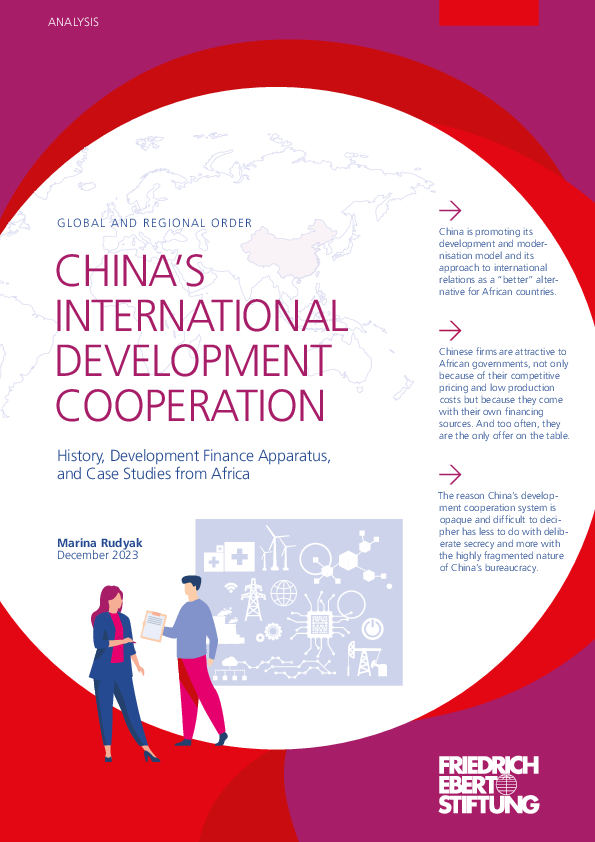- Share this article
- Subscribe to our newsletter
China’s international development cooperation
The report China’s international development cooperation. History, Development Finance Apparatus, and Case Studies from Africa, shows how Beijing has become one of the largest contributors to development assistance and how the importance of development finance as a foreign policy tool has increased significantly since Xi Jinping came to power in 2012. It was published by Asia-Pacific Department of the Friedrich-Ebert Stiftung (FES) in December 2023, and is part of a publication series which examines Beijing’s strategy in a range of different global policy fields. The study provides a comprehensive and in-depth analysis of China’s highly complex aid and development financing bureaucracy and highlights the differences in the understanding of development between China and the West.
More and more, China is promoting its development and modernisation model and its approach to international relations as a “better” alternative for developing countries. Between 2007 and 2020, China lent more than twice as much to Sub-Saharan African countries as the US, UK, Japan and Germany combined for infrastructure projects. The reason China’s development cooperation system is opaque and difficult to decipher has less to do with deliberate secrecy and more with the highly fragmented nature of China’s bureaucracy. China is not a monolith. While the Chinese government incentivises provinces, state-owned enterprise and non-state actors to engage in international development cooperation activities, there is no coordinated approach between different stakeholders, who even sometimes end up competing against each other.
The analysis shows that China is by no means a new actor and has used development cooperation as a strategic tool since the 1950s. It illustrates how Beijing is no longer simply building roads but also offering solutions for digital and telecommunication infrastructures or smart cities. In many places, China has stepped into gaps left by the West or not addressed at all in the first place.
The report addresses China’s cooperation with Africa in the areas of health, labour conditions and trade unionism in Chinese-financed infrastructure projects and smart city projects in select countries on the continent. Moreover, it provides both sector-specific and overarching recommendations on how the European Union and Germany should respond to China’s growing footprint in Africa.
(FES/ile)
More information:





Add a comment
Be the First to Comment